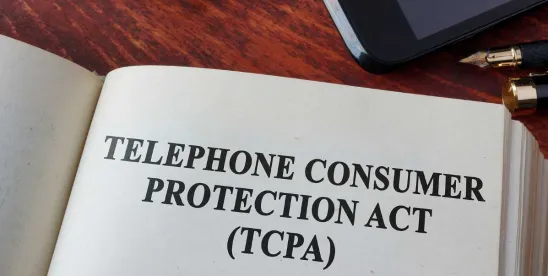Let’s talk about fax machines for a second. Yes, fax machines. In 2025. Apparently, they’re still alive and beeping—especially in the healthcare industry.
By way of background, Plaintiff operates a medical practice and still uses a fax machine “to send or receive confidential, urgent and transactional communications.”
Defendant, a wholly owned subsidiary of the Cigna Group, partners with third parties to address various challenges in the pharmacy benefits space and beyond. On March 27, 2024, Plaintiff alleges it received an unsolicited two-page standardized form advertisement on its fax machine. The fax included fourteen questions about Plaintiff’s medical practice. The only information unique to Plaintiff was its name and fax number on the cover sheet and its primary practice address on the form. The fax also included the sender’s email address.
In response, Plaintiff filed a one-count Class Action Complaint on September 3, 2024, asserting a violation of the Telephone Consumer Protection Act (TCPA), 47 U.S.C. § 227. The proposed class includes all persons and entities sent one or more documents by facsimile transmission on or after August 30, 2020, containing content from Evernorth Health Services recruiting or soliciting participation in a healthcare provider network, initiating a business relationship, or proposing a contracting opportunity. Advantage Medical Associates v. Evernorth Health, Inc., 2025 WL 2308514 (D.N.J. Aug. 8, 2025).
Defendant moved to dismiss the Complaint under Fed. R. Civ. P. 12(b)(6). Now, Defendant did not dispute that it sent the fax. Rather, it argued that the fax did not contain an “advertisement” as defined by the TCPA. Defendant maintained that the fax merely informed Plaintiff of a potential opportunity in the healthcare space and did not encourage the purchase of any goods or services. Solid argument.
The TCPA defines an “unsolicited advertisement” as “any material advertising the commercial availability or quality of any property, goods, or services which is transmitted to any person without that person’s prior express invitation or permission, in writing or otherwise.” 47 U.S.C. § 227(a)(5).
In evaluating whether the fax qualified under that definition, the court applied two tests developed by the Third Circuit:
Under the direct purchaser test, “the fax either must (1) notify a potential buyer that he or she can purchase a product, goods, or services from the sending entity or perhaps another seller, … or (2) induce or direct a willing buyer to seek further information through a phone number, an email address, a website, or equivalent method for the purposes of making a purchase.” Mauthe v. Nat’l Imaging Assocs., Inc., 767 F. App’x 246, 249 (3d Cir. 2019).
Under the third-party liability test, a plaintiff must show “that the fax: (1) sought to promote or enhance the quality or quantity of a product or services being sold commercially; (2) was reasonably calculated to increase the profits of the sender; and (3) directly or indirectly encouraged the recipient to influence the purchasing decisions of a third party.” Robert W. Mauthe, M.D., P.C. v. Optum Inc., 925 F.3d 129, 135 (3d Cir. 2019).
Defendant made some solid points based on the actual language of the fax. It did not expressly offer any services for sale, nor did it include any pricing or direct inducement to buy. In fact, the language appeared to simply inform Plaintiff of a potential opportunity within the healthcare field—nothing more.
But the court was not convinced.
In holding that Plaintiff plausibly alleged a TCPA violation, the court followed the Third Circuit’s ruling in Fischbein v. Olson Research Group, Inc., where the court held that “[a]ny fax announcing the availability of an opportunity for the recipient to exchange goods or services for compensation is ‘material advertising the commercial availability or quality of any property, goods, or services,’ within the TCPA.” 959 F.3d at 562. In that case, the Third Circuit determined that “[a]n offer of payment in exchange for participation in a market survey is a commercial transaction, so a fax highlighting the availability of that transaction is an advertisement under the TCPA.” Id. at 564.
Although the fax contains no express offer to compensate Plaintiff for a specific amount, it can plausibly be read as implicitly offering compensation to Plaintiff in exchange for Plaintiff joining Cigna’s network.
The court rejected the argument that this was a free or purely informational opportunity. Instead, it emphasized that the fax expressly outlined steps Plaintiff could take to contract directly with Cigna’s medical network—a process that clearly has commercial implications.
Because the fax could reasonably be read as inviting Plaintiff to engage in a compensated business relationship, the court found it qualified as an advertisement under the direct purchaser theory. As a result, the motion to dismiss was denied, and Plaintiff’s TCPA claim was allowed to proceed.
Bottom line: Even a fax that merely hints at a business opportunity can be enough to land you in litigation.




 />i
/>i
